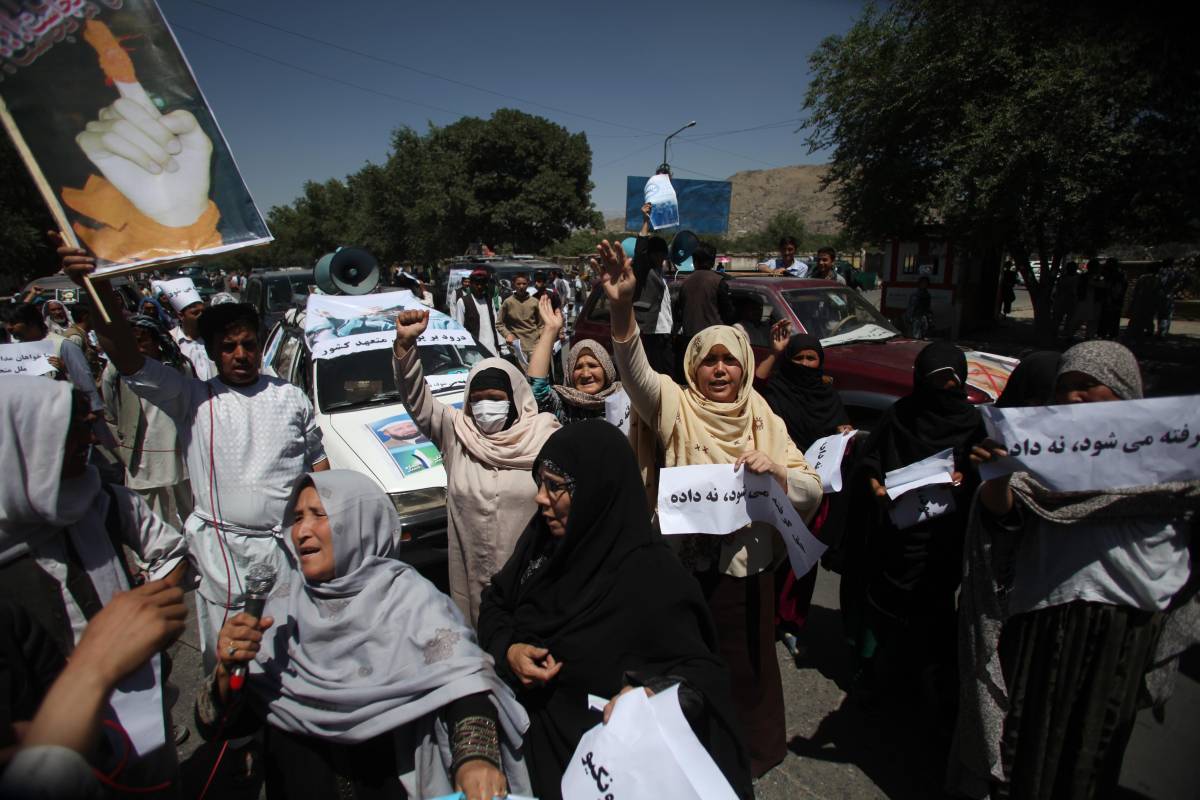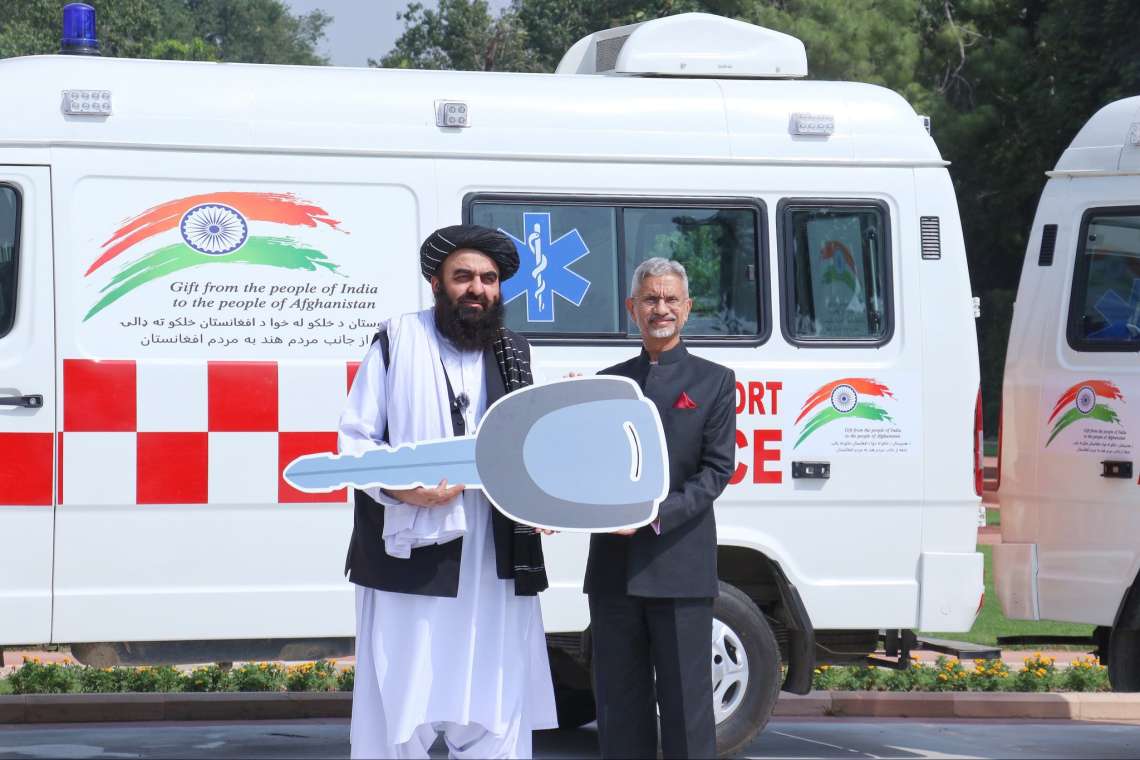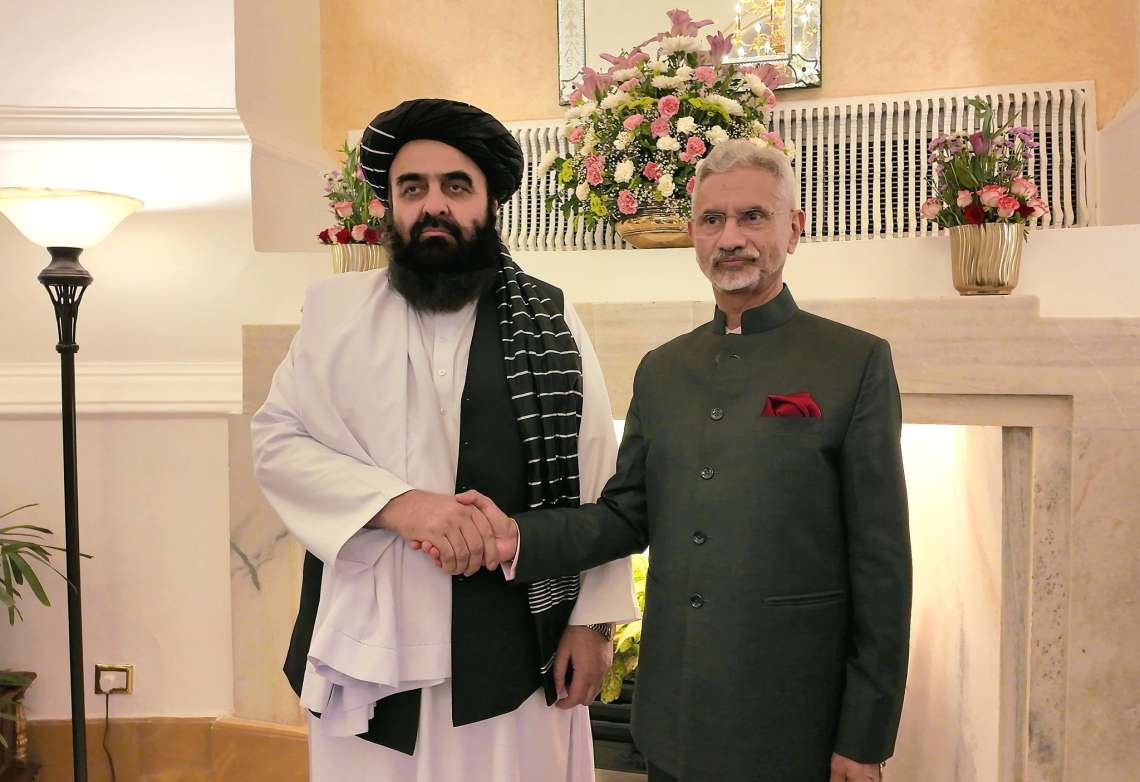Chanting slogans for their rights, protesters also lashed out at the international community for what they called ignoring the dire need for provision of basic rights to women in the country. ..reports Hamza Ameer
The delay in providing right to education and employment to women by the Afghan Taliban led interim government in Afghanistan has triggered protests and uproar in the country.
On Sunday, dozens of Afghan women took to the streets of Kabul again, demanding their right to learn and seek employment under the new Islamic Emirates rule.
Chanting slogans for their rights, protesters also lashed out at the international community for what they called ignoring the dire need for provision of basic rights to women in the country.
“We can tolerate hunger, can live without food, but we cannot tolerate injustice. We ask for freedom and justice in our country”, said one of the protesters.
The latest protest is part of a series of protests that the Afghan women have been staging since the time Taliban took control of Afghanistan.
In the recent past, the Taliban security officials manhandled female protesters while media persons covering the protest were also assaulted and kept under custody.
The Afghan Taliban interim government later announced through its Ministry of Interior (MoI) that demonstrations without the permission of the relevant ministry would not be allowed.
Later, a pro-Taliban female rally was held in Kabul, where women chanted pro-Taliban slogans and expressed their support to the newly imposed Islamic law in the country.
The Taliban claims of ensuring provision of all basic rights to women as per the teachings under the Islamic rule of law, will be provided to its female citizens, including right to work and education, they said.
Recently, a girls’ school in Herat was opened while Taliban claimed that female nurses and doctors have been coming to work without any problems.
“The Islamic Emirate does not cause discriminatory treatment for any part of the society, the problems and issues existed, we promise to resolve the problems,” said Inamullah Samangani, deputy spokesperson of the Islamic Emirates of Afghanistan (IEA).
But many believe that majority of women are still prohibited and restricted from employment or education.
“Women are half of the society, they have rights, there should be opportunities for learning and working based on the customs and culture of Afghanistan”, said Abdul Qadir, a local resident of Kabul.














